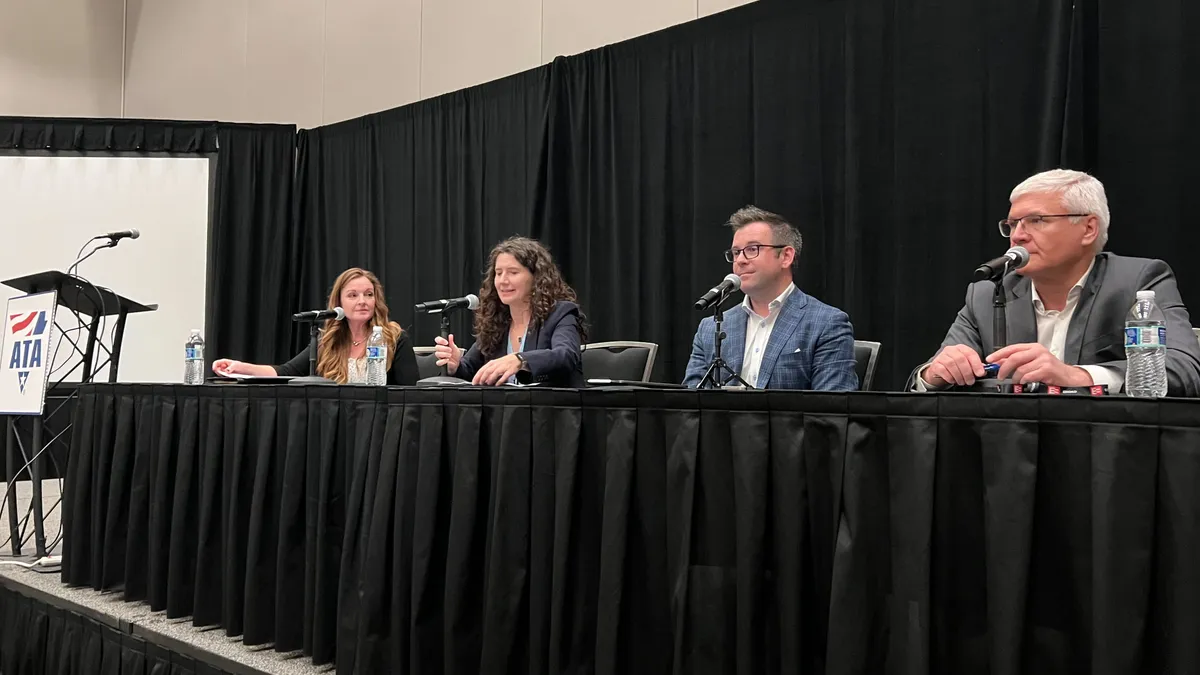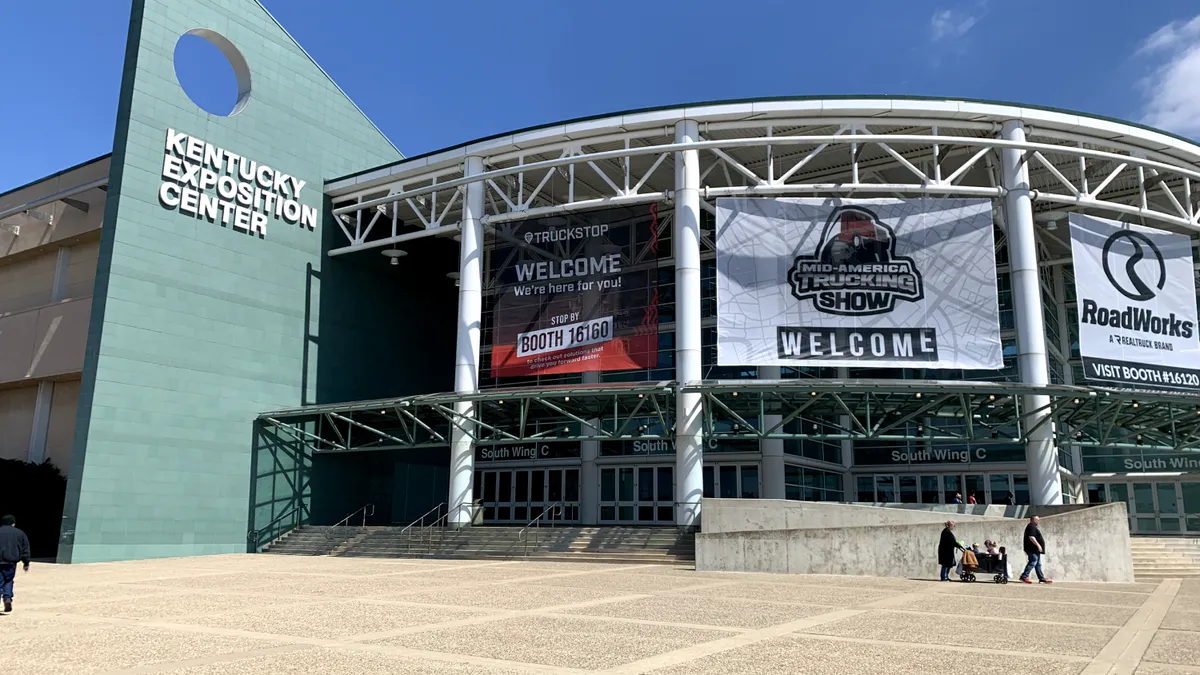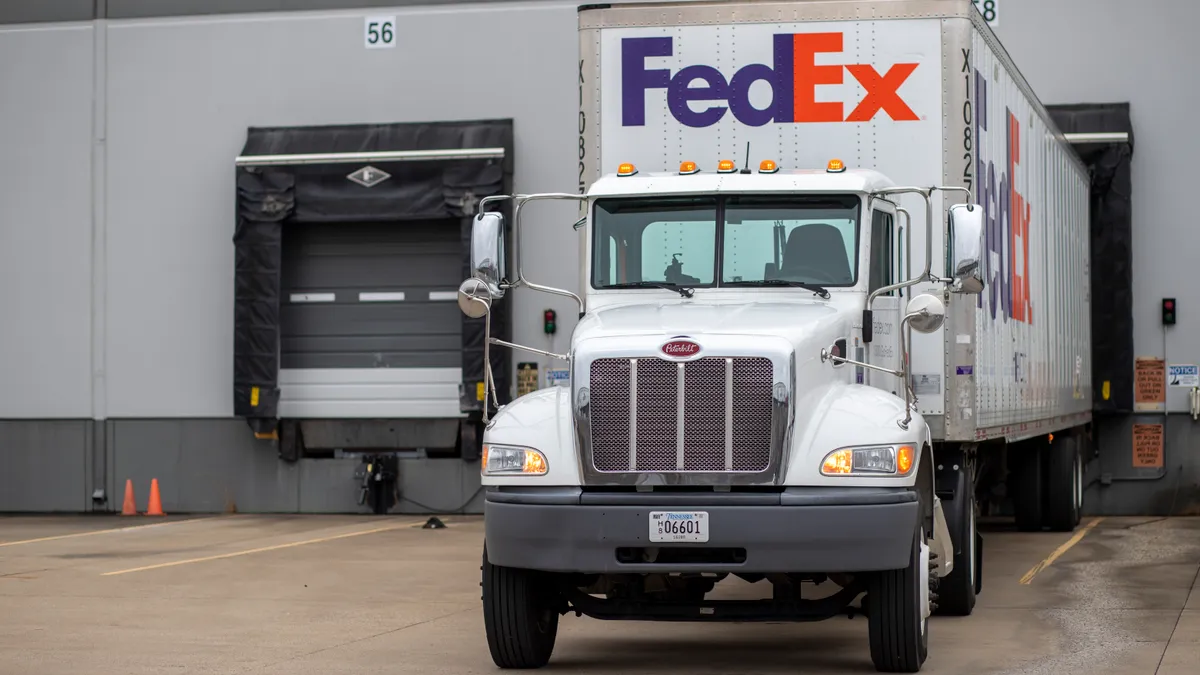The Biden administration has kicked off an analysis of the cost and operational barriers to charging medium- and heavy-duty electric trucks, Kevin Miller of the Joint Office of Energy and Transportation said this week.
It’s already clear, however, that electric- and hydrogen fuel cell-powered trucks each have a role to play in helping reduce emissions in the industry, said Miller, the office’s senior adviser for business models.
“We need to have a focus on both fuels, as well as fleet fundamentals, to make this work,” Miller said.
During a session at the American Trucking Associations’ 2023 Management Conference & Exhibition on Sunday, panelists credited the Bipartisan Infrastructure Law and Inflation Reduction Act with providing funding to begin addressing low-emissions infrastructure.
But more federal money will be required to create nationwide charging and fueling capabilities necessary for the technologies to replace the diesel that powers most of the industry, said Katie Ellet, president of Air Liquide Hydrogen Energy & Mobility, North America.
“Truthfully, it is still not enough,” Ellet said. “It’s a lot of money, but it takes a lot of money to get to where we need to go.”
Collaboration between regulators, manufacturers, trucking fleets, utilities and other stakeholders will be the key to success in making a dent in the industry’s greenhouse gas emissions, the panelists agreed.
They highlighted recent advancements in beginning to roll out hydrogen fueling options, even as Aulbur contended hydrogen costs need to come down for the alternative fuel to achieve more widespread adoption in the industry.
Ellet noted Air Liquide’s agreement last month with Trillium Energy Solutions to explore the deployment of an extensive hydrogen retail network allowing hydrogen trucks to fuel at Love’s Travel Stops.
And seven regional clean hydrogen hubs will receive $7 billion in Bipartisan Infrastructure Law funding to accelerate the domestic market for low-cost, clean hydrogen, Miller noted.
Building out a national infrastructure for low-emissions trucking will create opportunities to train workers for jobs as electricians and technicians for the new vehicles, Aulbur said.
“It's a great opportunity to build a new economy,” he said.













